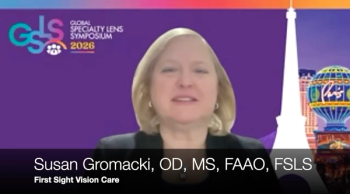
Patient needs should supersede insurance demands
Almost every eyecare practice has a person, team of people, or outside service whose sole job is to manage problems related to facilitating the relationship between patients and their insurance companies.
Almost every eyecare practice has a person, team of people, or outside service whose sole job is to manage problems related to facilitating the relationship between patients and their insurance companies.
It is unusual to find an eyecare practice that is not dominated by third-party payers. Many articles are written on recording documentation for maximum payments. ODs have attended multiple lectures on proper billing and coding worrying about the dreaded audits.
ODs should remain educated on the limitations and requirements of the insurance companies, but it is also important to remember the insurance companies don’t control the care of our patients.
Previously from Dr. Rothschild:
ODs may often feel like the relationship is between themselves and the insurance companies. We deal with insurance companies every day; most of our patients do not. We understand deductibles; copays; coverages; usual, customary, and reasonable fees (UCR); healthcare financing administration forms (HCFA); write-offs; additional case reserves (ACR); and all the other items related to filing insurance.
Our patients have learned that they aren’t going to get answers from their insurance companies-so they ask us.
Combine that with the fact that we still have to do eye exams, fit eyewear, manage referrals with other healthcare providers, coordinate with labs and distributors of our product, market the practice, and keep schedules full.
It’s easy to see where ODs may take shortcuts sometimes.
Related:
It’s not covered
For too long, we have avoided conversations with our patients about services that we know aren’t covered by their insurance. Conversations such as:
• “Glasses covered every two years? We will talk about it next year.”
• “Two tests not covered on same day? Pick one.”
• “Non-covered service? Let the patient go without.”
When we do venture into the non-covered service conversation, we tend to hesitate or sidestep, blaming the insurance company.
“Sometimes I like to order this test, but because it’s not covered by your insurance, I don’t know what we should do.”
Believe it or not, many of us wait for the patient to say, “How much is it?”
Homeowner’s insurance
I find changing perspective helps me to see things a little clearer. Think about homeowner’s insurance. I have a home, and I have insurance on that home. Some things are covered, and some are not.
I made several decisions on coverage, deductibles, and other benefits when I signed my policy. For the last several months, my wife has been hearing something in the attic. I claimed it was nothing, but the critter removal specialist who she called confirmed the presence of squirrels nesting in our attic-which is a bigger deal than you may think.
When you have squirrels in your attic, you can either put a Band Aid on it, or you can fix it for good. We wanted it fixed for good. I asked the critter removal specialist if my insurance would cover it, he said, “I don’t know, I doubt it.”
In fact, my homeowner’s policy does not cover critter removal. The critter removal specialist didn’t change his recommendation based on my dilemma, he just asked me for the money.
Related:
Put eye care first
As eyecare providers, ODs are expected to be experts in diagnosing and treating eye conditions. By default, we are also expected to understand and communicate insurance coverages to our patients.
But eye care must come first.
Just as ODs shouldn’t order an unneeded test because the insurance will pay for it, our recommendations should not change based on who’s paying the bill. To eliminate any personal bias, it is a good practice to make recommendations before knowing the patient’s coverage.
If a patient needs a new Rx, write it and tell the patient he needs new glasses. If your patient needs an imaging or retinal photography to confirm your potential diagnosis-order the test.
Document your initial recommendations and orders prior to checking coverages.
Dealing with payments
ODs know that patients are heavily influenced by what is and is not covered. After recommendations are made, help the patient understand who will be paying.
Most ODs are experts at that part, too.
Patients who needed new eyewear may see that the purchase is not covered until a future date. They already know they need new frames but have a decision to make. Factors patients need to consider may include:
• How big of a change in prescription
• Consequences of waiting
• Time until benefits renew
• Money needed to pay now
It is important to remember that you may not know the patient’s specific concerns. You may assume you know, but every patient is different.
Related:
What about expensive medical testing that is needed to confirm a potential sight-threating diagnosis?
Ordering multiple tests on the same day may result in a battery of tests applied to the patient’s deductible-leaving the patient financially responsible. Regardless, the patient knows he needs the test, and you still need the test results.
As ODs, we are perceived as the experts. We can give genuine, honest feedback to help our patients make their own financial decisions.
Patient questions may include:
• “Is there any harm in waiting a few months on this test?”
• “How often will we need to do this moving forward?”
• “When does the deductible start over?”
• “How much do the tests cost?”
Nobody knows what is going to happen with health care in the next few years, but everybody knows that changes to the healthcare landscape are coming with more regulation and payment restrictions.
As healthcare costs are being shifted to the consumer, ODs need to get comfortable talking to their patients about financial obligations.
Talking about money is never easy, but it is a lot easier when you can honestly say, “I always think about what’s best for you first. Then we can work together to worry about who’s going to pay for it.”
Newsletter
Want more insights like this? Subscribe to Optometry Times and get clinical pearls and practice tips delivered straight to your inbox.















































